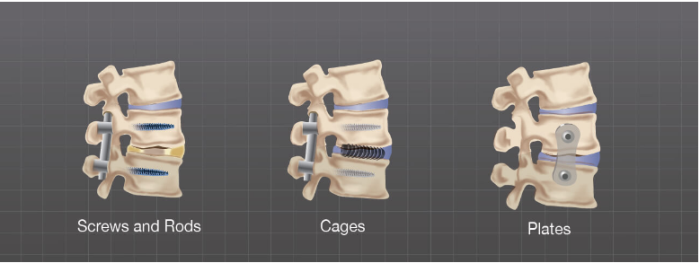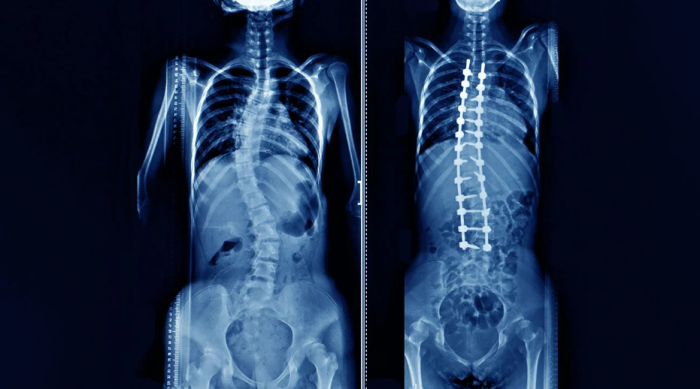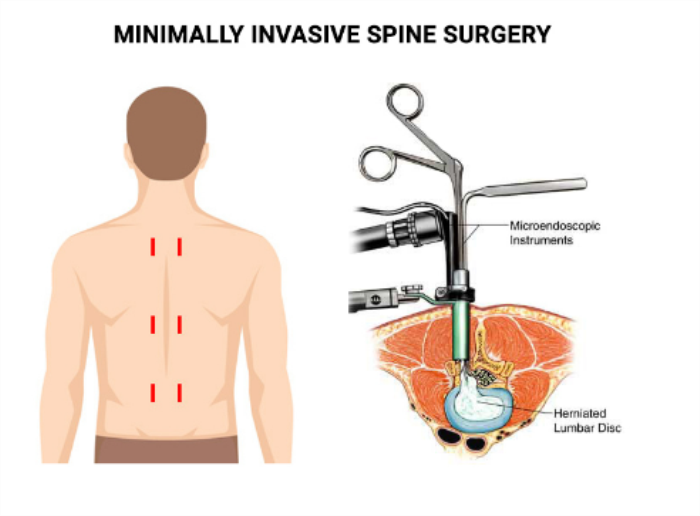Spinal fusion surgery in India offers world-class medical expertise and advanced facilities at competitive costs. Renowned hospitals and skilled surgeons ensure high success rates and comprehensive care. Patients from around the globe choose spinal fusion surgery in India for its effective treatment and swift recovery.
Understanding Spinal Fusion Surgery
What is Spinal Fusion Surgery and How Does it Work?
Spinal fusion surgery is a procedure that joins two or more vertebrae to reduce pain and improve stability in the spine. By using bone grafts or implants, the surgery promotes bone growth between the fused vertebrae, effectively eliminating movement and alleviating discomfort. This technique is commonly used to treat spinal conditions like degenerative disc disease and scoliosis.
When is Spinal Fusion Surgery Necessary?
Spinal fusion surgery is necessary when conservative treatments fail to alleviate chronic back pain caused by conditions like degenerative disc disease, scoliosis, or spinal fractures. This procedure stabilizes the spine by fusing vertebrae, reducing pain, and preventing further damage. It is often considered when other treatments do not provide sufficient relief.
Different Types of Spinal Fusion Surgeries
Different types of spinal fusion surgeries include anterior lumbar interbody fusion (ALIF), posterior lumbar interbody fusion (PLIF), and transforaminal lumbar interbody fusion (TLIF). Each technique varies in approach and the specific vertebrae involved, tailored to address the patient's unique spinal condition and ensure optimal outcomes.

The Spinal Fusion Surgery Procedure
Pre-Surgery Evaluation Process
The pre-surgery evaluation process for spinal fusion surgery involves a comprehensive assessment including medical history, physical examination, and imaging tests like X-rays or MRIs. This ensures the surgeon accurately diagnoses the condition and plans the most effective treatment. Blood tests and other screenings may also be conducted to ensure the patient's readiness for surgery.
Choosing the Right Type of Spinal Fusion Surgery
Choosing the right type of spinal fusion surgery depends on the specific spinal condition, the location of the issue, and the patient’s overall health. A thorough evaluation by a spine specialist ensures the most effective surgical approach is selected for optimal recovery and pain relief.
Detailed Surgical Procedure for Spinal Fusion
The detailed surgical procedure for spinal fusion involves removing damaged disc material, inserting bone grafts or implants between vertebrae, and securing the spine with metal plates, screws, or rods. This promotes bone growth and stability, ultimately fusing the vertebrae together to alleviate pain and improve function.
Post-Surgery Care and Recovery
Post-surgery care and recovery for spinal fusion involve pain management, physical therapy, and activity modifications to ensure proper healing. Regular follow-ups with the surgeon are essential to monitor progress and prevent complications, helping patients regain mobility and strength gradually.
Top Hospitals for Spinal Fusion Surgery in India
Leading hospitals for spinal fusion surgery in India include Apollo Hospitals, Fortis Healthcare, AIIMS, Medanta - The Medicity, and Max Healthcare. These institutions are renowned for their advanced medical facilities, experienced spine surgeons, and comprehensive care, ensuring successful outcomes for spinal fusion procedures.
Cost of Spinal Fusion Surgery in India
The cost of spinal fusion surgery in India ranges from INR 3,00,000 to INR 6,00,000, depending on factors like the type of surgery, hospital, and surgeon's expertise. This makes India a cost-effective destination for high-quality spinal fusion procedures compared to other countries.
Explore a detailed breakdown of spinal fusion surgery cost in India by visiting our in-depth guide spinal fusion surgery cost in India.
Success Rates and Survival Statistics for Spinal Fusion Surgery in India
Spinal fusion surgery in India boasts success rates of 85% to 95%, with patients experiencing significant pain relief and improved mobility. Survival statistics are also favorable, with the majority of patients recovering well and returning to normal activities, highlighting the effectiveness and safety of the procedure in the country.
Legal and Ethical Considerations for Spinal Fusion Surgery in India
Legal and ethical considerations for spinal fusion surgery in India include obtaining informed consent, ensuring patient confidentiality, and adhering to regulatory standards set by medical councils. Surgeons must provide clear information about risks, benefits, and alternatives, maintaining transparency and ethical practices throughout the treatment process.
Preparing for Spinal Fusion Surgery
Lifestyle Changes Before Spinal Fusion Surgery
Lifestyle changes before spinal fusion surgery include quitting smoking, maintaining a healthy weight, and engaging in light exercise to
improve overall fitness. These adjustments help enhance surgical outcomes, reduce complications, and support a smoother recovery process.

Medications and Treatments Required for Spinal Fusion Surgery Patients
Medications and treatments for spinal fusion surgery patients include pain relievers, anti-inflammatory drugs, and antibiotics to prevent infection. Physical therapy and rehabilitation exercises are also essential to strengthen the spine, enhance mobility, and ensure successful recovery post-surgery.
Importance of Support Systems and Counseling for Spinal Fusion Surgery Patients
Support systems and counseling are crucial for spinal fusion surgery patients, as they provide emotional encouragement and practical assistance during recovery. Having a strong support network and access to psychological counseling can help manage stress, adhere to post-surgery protocols, and improve overall recovery outcomes.
Life After Spinal Fusion Surgery
Recovery Process After Spinal Fusion Surgery
The recovery process after spinal fusion surgery involves a gradual return to normal activities, guided by a physical therapy regimen to strengthen the spine and improve mobility. Patients typically experience pain reduction and increased stability over several months, with regular follow-ups to monitor progress and ensure optimal healing.
Long-term Care and Monitoring After Spinal Fusion Surgery
Long-term care and monitoring after spinal fusion surgery involve routine check-ups to assess spine stability, ongoing physical therapy
to maintain strength and flexibility, and imaging tests to ensure proper fusion. Patients should follow their surgeon's advice and
lifestyle recommendations to sustain optimal results and prevent complications.
Potential Risks and Complications of Spinal Fusion Surgery
Potential risks and complications of spinal fusion surgery include infection, blood clots, nerve damage, and non-union of the fused vertebrae. Patients may also experience persistent pain or limited mobility. Proper pre-surgery preparation and adherence to post-surgery care can help minimize these risks and improve overall outcomes.
Latest Advancements in Spinal Fusion Surgery
Minimally Invasive Techniques in Spinal Fusion Surgery
Minimally invasive techniques in spinal fusion surgery involve smaller incisions and advanced surgical tools, which reduce muscle damage and promote faster recovery. These techniques typically result in less postoperative pain, shorter hospital stays, and quicker return to daily activities, while still achieving effective spinal stabilization.

Use of Advanced Imaging for Better Outcomes
The use of advanced imaging technologies, such as MRI and CT scans, plays a crucial role in spinal fusion surgery by providing detailed visuals of the spine. This precision aids in accurate diagnosis, surgical planning, and real-time guidance during the procedure, leading to improved outcomes and reduced risk of complications.
Development of Advanced Surgical Tools
The development of advanced surgical tools, such as robotic-assisted systems and high-precision instruments, has revolutionized spinal fusion surgery. These innovations enhance the surgeon's accuracy, reduce the invasiveness of the procedure, and contribute to quicker recovery times and improved patient outcomes.
Frequently Asked Questions (FAQs) about Spinal Fusion Surgery
What is the success rate of spinal fusion surgeries in India?
Success rates for spinal fusion surgeries in India are generally high with proper medical care and expert surgical teams.
How long is the hospital stay after spinal fusion surgery?
The hospital stay after spinal fusion surgery typically ranges from 3 to 7 days, depending on the specific procedure and patient recovery.
What is the cost of spinal fusion surgery in India?
The cost of spinal fusion surgery in India varies from ₹3 lakh to ₹8 lakh, depending on the complexity of the procedure and the hospital.
What are the eligibility criteria for spinal fusion surgery?
Eligibility criteria include the specific spinal condition being treated, the patient’s overall health, and their response to previous treatments.
What is the recovery time after spinal fusion surgery?
The recovery time after spinal fusion surgery typically ranges from 6 to 12 weeks, with gradual improvement in mobility and strength.
What are the risks and complications associated with spinal fusion surgeries?
Potential risks and complications include infection, bleeding, nerve damage, and non-union of the fused vertebrae.
How do I find a suitable hospital for spinal fusion surgery in India?
To find a suitable hospital, consult your doctor and research top hospitals with experienced spinal surgeons and positive patient reviews.
What kind of post-surgery care is required after spinal fusion surgery?
Post-surgery care includes medication adjustments, regular check-ups, and a physical therapy regimen to aid in recovery.
Are spinal fusion surgeries covered by insurance in India?
Some insurance plans cover spinal fusion surgeries; it’s important to check with your provider for specific coverage details.
Where can I find support groups for spinal fusion surgery patients in India?
Support groups for spinal fusion surgery patients can be found through hospitals and online communities dedicated to spine health.
Discover the Best Neurosurgery Hospitals and Neurosurgeons in India
When it comes to brain and spine care, choosing the right hospital and specialist is essential. We�ve highlighted the top neurosurgery hospitals and neurosurgeons across India to ensure you receive the best care available.
Top Neurosurgery Hospitals in India
Find the leading centers for brain and spine care:
Best Neurosurgeons in India
Meet the top specialists in brain and spine surgery:
Get more indepth information on Neurology treatments and their costs.
Conclusion
Your brain and spine health deserve the best care. Explore the links above to learn more about the top neurosurgery hospitals and neurosurgeons in India.